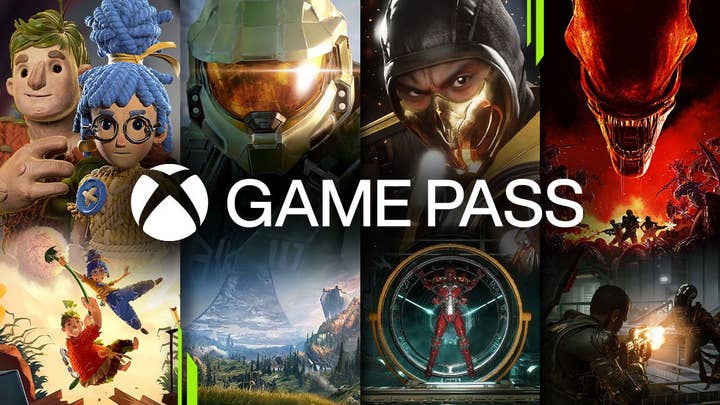UK regulator details concerns over Microsoft’s proposed acquisition of Activision Blizzard, Xbox responds
The CMA expects the deal to impact PlayStation and game streaming
The Competition and Markets Authority has detailed its concerns over Microsoft's proposed acquisition of Activision Blizzard.
The UK regulator is seen as the key element as to whether this deal would be allowed to go ahead. The deal did not pass the initial phase of approval, and has been sent to a second phase.
Now the group has cited its concerns over the deal, and Microsoft has responded to them.
The impact on PlayStation and other rivals
The CMA is concerned that the deal will harm PlayStation and other multi-game subscription offerings as Microsoft may withhold Activision Blizzard content from them. The body is also concerned that Microsoft may use Activision Blizzard, alongside other Microsoft services, to out-compete rivals such as Google, Amazon and Nvidia in the game streaming space.
"There is a realistic prospect of a substantial lessening of competition in gaming consoles, multi-game subscription services, and cloud gaming services," the firm said in an extensive document."There is a realistic prospect of a substantial lessening of competition"
Competition and Markets Authority
The CMA points to the 'network effect' of the console market, where a console with a lot of gamers attracts more content, which in turn attracts more gamers. And the firm is concerned that the acquisition of Call of Duty and any potential exclusivity on Xbox will create a sizeable network effect on Microsoft's platform.
"The CMA is concerned that having full control over this powerful catalogue, especially in light of Microsoft's already strong position in gaming consoles, operating systems, and cloud infrastructure, could result in Microsoft harming consumers by impairing Sony's – Microsoft's closest gaming rival – ability to compete as well as that of other existing rivals and potential new entrants who could otherwise bring healthy competition through innovative multi-game subscriptions and cloud gaming services."
Subscriptions are a key part of concerns, as the CMA believes it's possible (even likely) that without this deal, Activision Blizzard games may have come to other subscription services, too.
"The CMA recognises that ABK's newest games are not currently available on any subscription service on the day of release but considers that this may change as subscription services continue to grow. After the Merger, Microsoft would gain control of this important input and could use it to harm the competitiveness of its rivals."
In terms of streaming, the CMA's concerns are around Microsoft's potential in this market due to its ownership of the Azure cloud gaming service, plus its PC operating system. It believes that there's a chance this, coupled with the ownership of Activision Blizzard, will give Microsoft an "unparalleled advantage" over other cloud streaming providers.
"These unsupported theories of harm are not sufficient to justify a reference to Phase 2," Microsoft has said in a detailed response to decision.
In terms of the CMA's concerns over the impact on PlayStation, Microsoft says that there are numerous reasons why these concerns are 'misplaced'.
It cites PlayStation's current market-leading position with a console install base of 150 million vs Xbox's install base of 63.7 million. It also says that Sony's current market leadership has seen it 'conduct' practices such as raising the price of its console "without fear of losing market share". This follows the recent news that Sony was increasing the price of PS5 following rising production costs.

Xbox responds
In statements shared with GamesIndustry.biz, Microsoft argued: "The suggestion that the incumbent market leader, with clear and enduring market power, could be foreclosed by the third largest provider as a result of losing access to one title is not credible."
Microsoft posited, although doesn't share any figures, that if every single Call of Duty player on Sony's console would switch to Xbox, "the PlayStation gamer base remaining would be significantly larger than Xbox."
"While Sony may not welcome increased competition, it has the ability to adapt and compete"
Xbox
Microsoft also talked about the level of content available on Sony's platform. Pointing out some of Sony's recent (but significantly smaller) acquisitions, the company says there were over 280 first and third-party exclusive titles on PlayStation in 2021, which was nearly five times as many as Xbox.
"In short, Sony is not vulnerable to a hypothetical foreclosure strategy, and the Referral Decision incorrectly relies on self-serving statements by Sony which significantly exaggerate the importance of Call of Duty to it and neglect to account for Sony's clear ability to competitively respond," Microsoft added.
"While Sony may not welcome increased competition, it has the ability to adapt and compete. Gamers will ultimately benefit from this increased competition and choice."
Once again, Microsoft reiterated its intention to keep Call of Duty on PlayStation consoles. It stated that taking Call of Duty away from PlayStation would "alienate" the fanbase and "tarnish both the Call of Duty and Xbox brands".
Microsoft argued that bringing Activision Blizzard games to Game Pass, which is the company's big motivation behind the deal, would offer gamers more choice in how they access content.
Microsoft made no suggestion it would also make Call of Duty available on other subscription services. However, the company observed that as Game Pass isn't available on PlayStation, the CMA's concerns that such a deal would ‘tip' subscription services in Xbox's favour is not accurate. Microsoft also believes that with the continued popularity of traditional ‘buy to play' and free-to-play models means that Game Pass will always face strong competition.
Microsoft concluded this area of the CMA's concerns by saying that if gamers do choose to leave PlayStation for Xbox, it will be because Xbox is offering choice in its approach to how games can be bought.
"Should any consumers decide to switch from a gaming platform that does not give them a choice as to how to pay for new games (PlayStation) to one that does (Xbox), then that is the sort of consumer switching behavior that the CMA should consider welfare enhancing and indeed encourage. It is not something that the CMA should be trying to prevent."
Streaming concerns
The second area of the CMA's concerns is around Microsoft using Activision Blizzard to become dominant in the game streaming area, by using that content alongside Microsoft's owned cloud service provider, Azure, plus its PC operating system.
This is one of the more complicated areas to analyse, as it is talking about a part of the games business that is still in its early stages of development.
Microsoft believes the CMA's concerns here are flawed as currently Microsoft's Xbox Cloud Gaming service does not use Azure, and does not stream games from PC hardware.
"Xbox faces significant disadvantages compared to rival providers of infrastructure for game streaming"
Xbox
"There is no advantage," the company said. "Indeed, Xbox considers that it faces a number of significant disadvantages as compared to rival providers of infrastructure for game streaming."
The CMA is concerned that the Activision Blizzard deal, along with the other products at Microsoft's disposal, could raise barriers to entry and potentially 'foreclose' rivals in cloud gaming services.
However, Microsoft insisted that blocking potential competitors in the game streaming space runs counter to the objective of making it a successful distribution model in the first place.
"Consumer adoption of cloud gaming remains low," it said. "Harming or degrading rival services would significantly set-back adoption of this technology – protecting market-leading incumbents (i.e., Sony on console, Apple and Google on mobile, as well as Steam on PC).
"Xbox, as a platform which is in last place in console, seventh place in PC and nowhere in mobile game distribution globally, has no incentive to do this – instead its incentive is to encourage the widespread adoption of cloud gaming technologies by as many providers as possible to encourage the major shift in consumer behaviour required for cloud gaming to succeed."
The CMA will issue its preliminary findings from the second phase investigation in January, with the final report expected by March 1.
US regulator the FTC is also conducting a second phase investigation. The deal has already been approved in Brazil and Saudi Arabia.
You can find out more about the deal and the regulatory hurdles it faces in our handy primer.









